BMW iX1 vs VW T-Roc - Differences and prices compared
Costs and Efficiency:
When it comes to price and running costs, the biggest differences usually appear. This is often where you see which car fits your budget better in the long run.
VW T-Roc has a significantly advantage in terms of price – it starts at 26400 £, while the BMW iX1 costs 41800 £. That’s a price difference of around 15390 £.
Engine and Performance:
Under the bonnet, it becomes clear which model is tuned for sportiness and which one takes the lead when you hit the accelerator.
When it comes to engine power, the BMW iX1 has a convincingly edge – offering 313 HP compared to 150 HP. That’s roughly 163 HP more horsepower.
In acceleration from 0 to 100 km/h, the BMW iX1 is decisively quicker – completing the sprint in 5.60 s, while the VW T-Roc takes 8.90 s. That’s about 3.30 s faster.
In terms of top speed, the VW T-Roc performs to a small extent better – reaching 212 km/h, while the BMW iX1 tops out at 180 km/h. The difference is around 32 km/h.
There’s also a difference in torque: BMW iX1 pulls decisively stronger with 494 Nm compared to 250 Nm. That’s about 244 Nm difference.
Space and Everyday Use:
Beyond pure performance, interior space and usability matter most in daily life. This is where you see which car is more practical and versatile.
Seats: offers more seating capacity – vs .
In curb weight, VW T-Roc is distinct lighter – 1465 kg compared to 1940 kg. The difference is around 475 kg.
In terms of boot space, the BMW iX1 offers minimal more room – 490 L compared to 475 L. That’s a difference of about 15 L.
In maximum load capacity, the BMW iX1 performs slight better – up to 1495 L, which is about 145 L more than the VW T-Roc.
When it comes to payload, VW T-Roc slight takes the win – 515 kg compared to 495 kg. That’s a difference of about 20 kg.
Who wins the race?
The BMW iX1 proves to be dominates this comparison and therefore becomes our DriveDuel Champion!
BMW iX1 is the better all-rounder in this comparison.
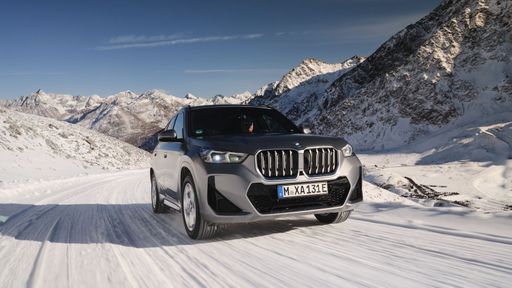 @ BMW Group Press
@ BMW Group Press
BMW iX1
Costs and Consumption
View detailed analysis
Engine and Performance
View detailed analysis
Dimensions and Body
View detailed analysis
BMW iX1
The BMW iX1 wraps BMW's electric ambition into a compact SUV package that feels unexpectedly premium, with sharp handling and a crisp, modern cabin that keeps the driver in charge. It's ideal for buyers who want a stylish, quiet daily driver with useful practicality and tech-savvy touches — plus enough character to make the commute feel less like a chore and more like a short joyride.
details @ BMW Group Press
@ BMW Group Press
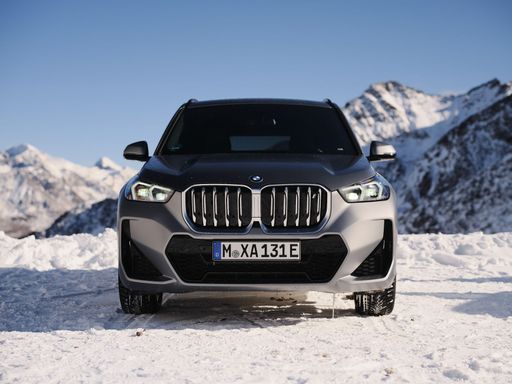 @ BMW Group Press
@ BMW Group Press
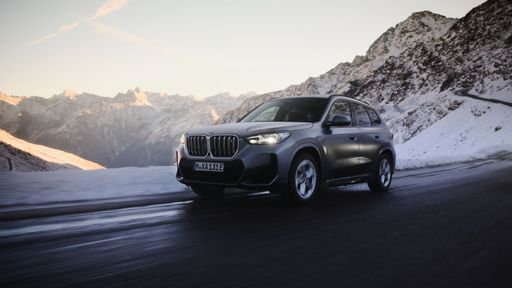 @ BMW Group Press
@ BMW Group Press
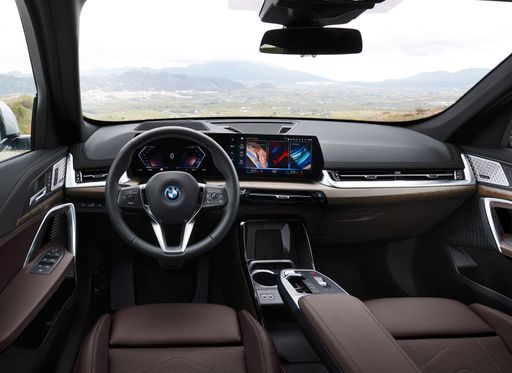 @ BMW Group Press
@ BMW Group Press
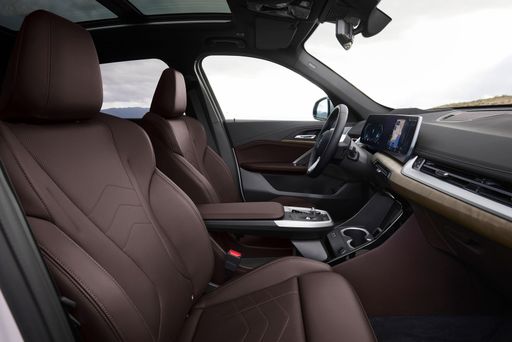 @ BMW Group Press
@ BMW Group Press
VW T-Roc
The VW T-Roc mixes cheeky, coupe-like styling with the everyday sense and space of an SUV, so it looks fun without sacrificing family sense. It’s a likeable all-rounder with tidy road manners and plenty of personality, ideal if you want a car that’s practical enough for chores but entertaining enough to enjoy.
details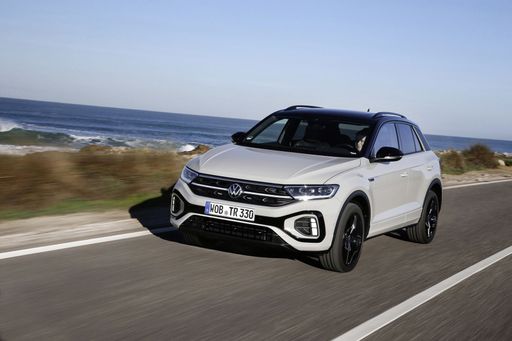 @ Volkswagen AG / VW Media
@ Volkswagen AG / VW Media
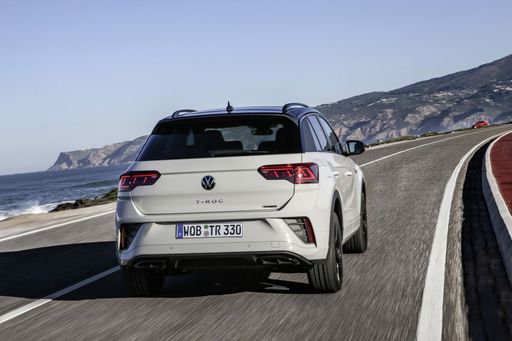 @ Volkswagen AG / VW Media
@ Volkswagen AG / VW Media
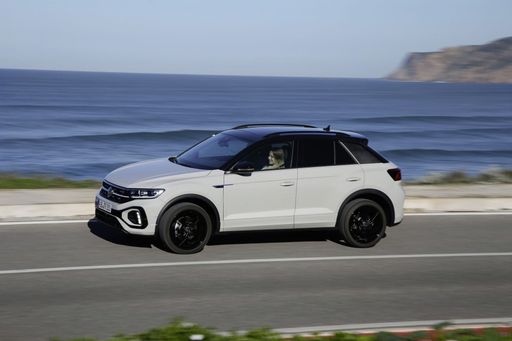 @ Volkswagen AG / VW Media
@ Volkswagen AG / VW Media
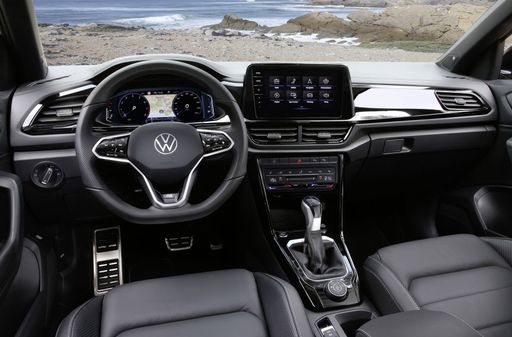 @ Volkswagen AG / VW Media
@ Volkswagen AG / VW Media
 @ BMW Group Press
@ BMW Group Press
|
 @ Volkswagen AG / VW Media
@ Volkswagen AG / VW Media
|
|
|
|
Costs and Consumption |
|
|---|---|
|
Price
41800 - 54600 £
|
Price
26400 - 38000 £
|
|
Consumption L/100km
-
|
Consumption L/100km
5.5 - 6.3 L
|
|
Consumption kWh/100km
15.8 - 17.1 kWh
|
Consumption kWh/100km
-
|
|
Electric Range
436 - 463 km
|
Electric Range
-
|
|
Battery Capacity
64.80 kWh
|
Battery Capacity
-
|
|
co2
0 g/km
|
co2
126 - 143 g/km
|
|
Fuel tank capacity
-
|
Fuel tank capacity
50 L
|
Dimensions and Body |
|
|---|---|
|
Body Type
SUV
|
Body Type
SUV
|
|
Seats
5
|
Seats
4 - 5
|
|
Doors
5
|
Doors
2 - 5
|
|
Curb weight
1940 - 2085 kg
|
Curb weight
1465 - 1539 kg
|
|
Trunk capacity
490 L
|
Trunk capacity
284 - 475 L
|
|
Length
4500 mm
|
Length
4271 - 4373 mm
|
|
Width
1845 mm
|
Width
1811 - 1828 mm
|
|
Height
1616 mm
|
Height
1527 - 1573 mm
|
|
Max trunk capacity
1495 L
|
Max trunk capacity
1350 L
|
|
Payload
495 kg
|
Payload
368 - 515 kg
|
Engine and Performance |
|
|---|---|
|
Engine Type
Electric
|
Engine Type
Petrol, Petrol MHEV
|
|
Transmission
Automatic
|
Transmission
Manuel, Automatic
|
|
Transmission Detail
Reduction Gearbox
|
Transmission Detail
Manual Gearbox, Dual-Clutch Automatic
|
|
Drive Type
Front-Wheel Drive, All-Wheel Drive
|
Drive Type
Front-Wheel Drive
|
|
Power HP
204 - 313 HP
|
Power HP
115 - 150 HP
|
|
Acceleration 0-100km/h
5.6 - 8.6 s
|
Acceleration 0-100km/h
8.9 - 12.3 s
|
|
Max Speed
170 - 180 km/h
|
Max Speed
187 - 212 km/h
|
|
Torque
250 - 494 Nm
|
Torque
200 - 250 Nm
|
|
Number of Cylinders
-
|
Number of Cylinders
3 - 4
|
|
Power kW
150 - 230 kW
|
Power kW
85 - 110 kW
|
|
Engine capacity
-
|
Engine capacity
999 - 1498 cm3
|
General |
|
|---|---|
|
Model Year
2022 - 2023
|
Model Year
2024 - 2025
|
|
CO2 Efficiency Class
A
|
CO2 Efficiency Class
E, D
|
|
Brand
BMW
|
Brand
VW
|
Is the BMW iX1 offered with different drivetrains?
The BMW iX1 is available as Front-Wheel Drive or All-Wheel Drive.
The prices and data displayed are estimates based on German list prices and may vary by country. This information is not legally binding.
